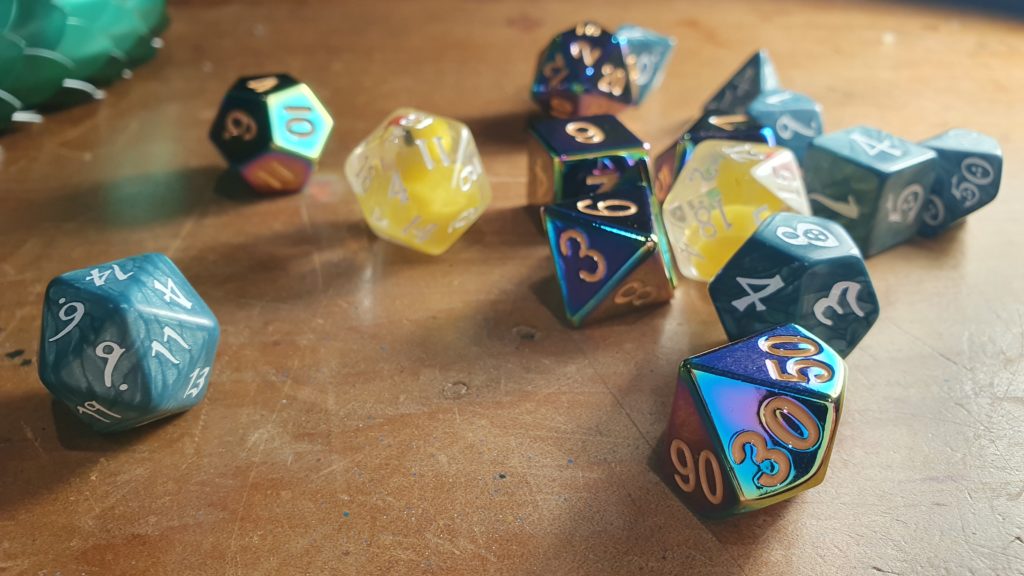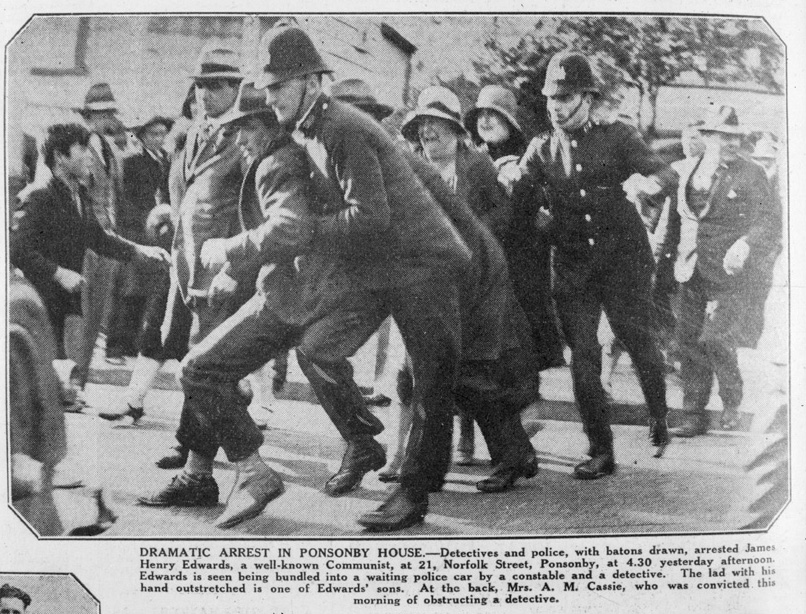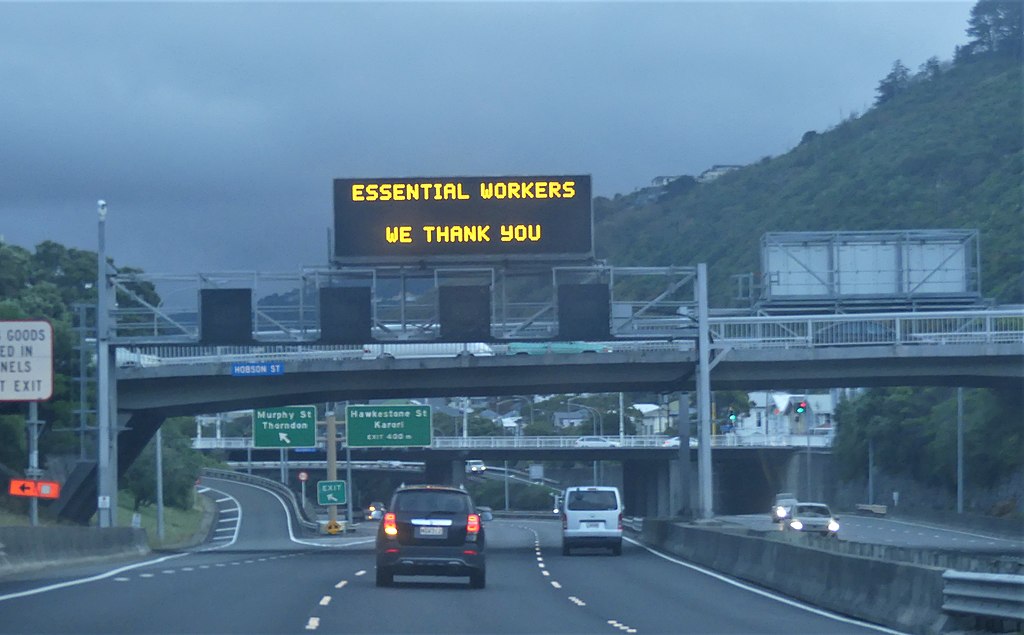Dungeons and Dragons (D&D) is, unfortunately, a commercial product owned by for-profit company Wizards of the Coast LLC (WotC) and therefore by that company’s owners: Hasbro Inc. We say unfortunately because D&D is also an experience, a source of joy, and a source of community for a lot of kids and adults alike. From fantasy novels set in D&D worlds to countless hours spent with friends spinning adventure stories together, many people like us have a connection to the worlds and experiences associated with D&D specifically versus numerous other role-playing games which have arisen in the past half century. Of course, the whole time D&D has existed the books and supplementary materials have always been sold for a more-than-cost-of-production price in shops, and personal wealth has always restricted each individual’s potential engagement with D&D worlds. It is an understatement to say the commercial reality and the community ‘vibe’ have always been in tension. But our concept of “D&D” has been much more akin to collectivised folklore and folk gaming than seeing it as a legally restricted “intellectual property”.
For two decades the community has had a limited ability to publish supplementary D&D material under an ‘Open Gaming Licence’ (OGL). Many of us, as players but not publishers of D&D supplementary material, until recently haven’t paid much attention to this legal blurb in books and websites – we’ve simply basked in the joy of our favourite hobby becoming less reviled and more widespread. But capitalism ruins everything.
The OGL is, in brief, a legal document inspired by open-source software that allows creators anywhere to use the D&D game system to create their own worlds, settings, characters and so on to share with others. Under the OGL, creators were even allowed to sell their work without WotC taking a cut! At first glance, this sounds counter to the drive for profit, doesn’t it? Not according to ex-WotC Vice President Ryan Dancey. In an interview in 2002, Dancey went into great detail, shockingly honest detail, about the purpose of the Open Gaming Licence:
“Here’s the logic in a nutshell. We’ve got a theory that says that D&D is the most popular roleplaying game because it is the game more people know how to play than any other game. (For those of you interested researching the theory, this concept is called “The Theory of Network Externalities.”)
[Note: This is a very painful concept for a lot of people to embrace, including a lot of our own staff, and including myself for many years. The idea that D&D is somehow “better” than the competition is a powerful and entrenched concept. The idea that D&D can be “beaten” by a game that is “better” than D&D is at the heart of every business plan from every company that goes into marketplace battle with D&D game. If you accept the Theory of Network Externalities, you have to admit that the battle is lost before it begins, because the value doesn’t reside in the game itself, but in the network of people who know how to play it.]
If you accept (as I have finally come to do) that the theory is valid, then the logical conclusion is that the larger the number of people who play D&D, the harder it is for competitive games to succeed, and the longer people will stay active gamers, and the more value the network of D&D players will have to Wizards of the Coast.” [1]
This is confirmation of what you may have already guessed: the apparent display of altruism by a for-profit business was, in fact, a careful business decision intended to capture the market, fence out competition, and ensure players are driven towards their products… for profit! And it worked. The OGL was incredibly popular because anyone could create, and collaboratively build the D&D community. An apparent utopia of free association, but a situation which in actuality served to build a corporation’s brand recognition and consumer base.
Following the success of this strategy, eventually D&D grew into a lumbering titan of the role-playing game industry. The market became saturated, and profit growth slowed down. Not on Hasbro’s watch though. Not on WotC’s watch.
Flash forward to 2023.
At the start of 2023, WotC’s replacement ‘Open Gaming Licence’ was leaked and circulated online. This replacement licence:
- Backtracked on previously-made assurances by WotC that they wouldn’t interfere with creative people’s work;
- Increased the degree of control WotC had over material shared by the community;
- Allowed WotC to publish, without compensation, material created by the community, and even to stop the creator from sharing their own creations.
If this new licence had come into effect, it would have a chilling effect on the community. It has been pointed out that while this licence was still relatively open compared with how companies such as Disney handle their ‘intellectual property’, it was nonetheless very restrictive compared with the previous licence [2]. There has also been some conjecture and argument about the meaning of specific words crucial to the OGL such as ‘perpetual’ and ‘irrevocable’, the role of intent in the creation of a contract such as the OGL, and whether this change of licence would be enforceable in the event it was tried in court. At minimum, though, the announcement of a replacement OGL would have stopped a lot of people, often individuals or “indie creators”, even trying to make any income at all from creating supplementary D&D material such as stories, videos, and online tools. But more deeply than simply a financial and contractual rearrangement, this leaked licence change was felt by the community as a betrayal of the spirit of creativity and free sharing of ideas. D&D has often been heralded as one of the few bastions of creativity where people proclaim “please, steal my work! I hope it makes your game better!” But now, this company that, frankly, has very little to do with their game table was essentially saying: “pay up, or we’ll take your content and sell it.” The outpouring of anger fuelled by that sense of betrayal has been palpable.
Almost every aspect of our nostalgia and our goodwill is exploited for profit, from childhood toys to remade movies, from artificial scarcity to cease-and-desist orders shutting down fan websites, and so on. WotC and Hasbro are for-profit companies, and maximising control over their profit-making activities is simply expected behaviour. While the exact details vary in each situation, this general sequence of events is not unique to these particular companies, nor unpredictable behaviour for any corporation. The capitalist philosophy requires every business to maximise profit or collapse, and the role of a ‘community’ in the context of a profit-making institution is merely as a tool to drive consumption and/or reduce labour costs. The terms of the leaked D&D licence only made that role more explicit than before and certainly ratcheted up the level of exploitation, and this was understandably a shock to those who had held an optimistic view of the corporate dynamics of their favourite game. Crucially, it was also a shocking blow to the average WotC worker. The only reason we know so much about the inner workings of the new licence discussion is because multiple workers leaked details to journalists behind the backs of their bosses in order to salvage the work and community that is their livelihood.
In recent years, D&D has seen greater-than-ever popularity. This latest OGL debacle will lose a lot of goodwill and some of its player (customer) base, but WotC will probably navigate a path that ensures acceptable profit, and Hasbro certainly will continue with minimal disruption to their approximately four billion dollar annual profit [3]. Already, WotC has come out with a statement of intent to backtrack (for now) on some of its more draconian measures. As is standard for these sorts of damage-control statements, there is a substantial quantity of gaslighting designed to confuse the consumer into believing the company had their best interests at heart all along:
“Driving these goals were two simple principles: (1) Our job is to be good stewards of the game, and (2) the OGL exists for the benefit of the fans. Nothing about those principles has wavered for a second. That was why our early drafts of the new OGL included the provisions they did. That draft language was provided to content creators and publishers so their feedback could be considered before anything was finalized. In addition to language allowing us to address discriminatory and hateful conduct and clarifying what types of products the OGL covers, our drafts included royalty language designed to apply to large corporations attempting to use OGL content. It was never our intent to impact the vast majority of the community.” [4]
Dungeons and Dragons in-jokes have abounded. Using the ‘alignment’ morality language of D&D, discussion board users have described WotC’s actions as “lawful evil”. This is particularly ironic considering a disclaimer printed in one of WotC’s recent books, Descent into Avernus, stating: “Wizards of the Coast fully endorses the kicking of evil’s butt.” In a ‘how do you do, fellow kids?’ sort of moment, WotC tried to appeal to the community by apologising using role-playing game terminology: “However, it’s clear from the reaction that we rolled a 1.” [5] Commentators have, of course, used much more descriptive and effective references to the fantasy genre to explain the company’s actions: “WotC has shown that they are the dragon on top of the hoard, willing to burn the thriving village if only to get a few more gold pieces. It’s time for us to band together as adventurers to defend our village from the terrible wyrm.” [6]
The now-jaded community of people who recreationally enjoy D&D, or help pay their bills through creating supplementary art, stories and so forth, are left wondering where to from here. Ongoing online discussions suggest switching their gaming away from D&D and to alternative game systems, such as Pathfinder which is published by Paizo Inc. Such large numbers of people have been cancelling their subscriptions to the D&D web service D&D Beyond that first the website crashed, then later WotC have ‘hidden’ the button to unsubscribe. Discussions have questioned how continuing to play a game for which you already own the materials, such as rule books, actually helps or condones a company whose morals you consider questionable. A common theme of such discussions is the concept of ‘voting with your wallet’, which is synonymous with allowing free market forces to dictate which companies succeed and which fail. And there is the proposed holy grail of a new game licence (to be called the ‘Open RPG Creative License’), to be created by Paizo Inc but managed by a separate entity, which perhaps will produce some relative degree of collective ownership in the style of open-source software such as Linux. In a neoliberal capitalist epoch, these consumption-based responses are to be expected, but it is our job as socialists to point the finger at the other side of the equation: at production, at a system that values constant growth, and which will sacrifice existing creative communities to achieve that goal.
It is, nonetheless, heartening to see large numbers of people rally in defence of art and ideas of collectivism and against monopoly and the drive for profit. Despite the limitations inherent in a boycott of a consumer product, this unfolding drama may just help those consumers gain a slightly greater insight into the structures present in our society, which even infect the games they play to forget about the day-to-day pressures of wage drudgery.
What lessons do we draw from this debacle that mean more to the socialist movement than just the ability to enjoy a role-playing game?
- These events show the power of collective action. This was more than an average boycott, it was an exposing of the inner working of a company’s production. It laid bare the exploitative practices a near-monopoly levelled against smaller, even fledgling businesses, and the way it weaponised non-disclosure agreements to control a narrative. We saw a community of passionate creators and artists poring over legal documents to identify how they could be used to control the flow of wealth, not terribly unlike a collective of workers picking over a collective agreement together and learning from one another, including journalists and lawyers who were counted among the masses, making their voices heard.
- Players learned their creations and art are not deemed worthy of existing for their own sake. If a creation cannot be alienated from its creator, then it must be made to serve to carve out a piece of a market for an intellectual property owner. If not, the capitalists shut you down. To be clear, it hasn’t just been socialists yelling “the problem is capitalism!” The player base en masse has expressed an understanding that the profit motive is their Big Bad Evil Guy.
- Anyone who cares about their work should unionise! If WotC workers had been unionised and if union laws were stronger, they would not have had to resort to leaking insider knowledge to reporters. The workers could have collectively said to the employer: “no, here’s how we want the product of our labour to be used in the community.” And if the employer had resisted, the workers would have been empowered to collectively put down their tools down until WotC came crawling back.
- And, lastly: if you want to greedily plunder a group of people, don’t pick a fight with the folks who spend their free time role-playing in groups collectively facing seemingly insurmountable odds to create a better world.
- https://web.archive.org/web/20020404235238/http://www.wizards.com/dnd/article.asp?x=dnd%2Fmd%2Fmd20020228e
- https://www.youtube.com/watch?v=iZQJQYqhAgY
- https://www.macrotrends.net/stocks/charts/HAS/hasbro/gross-profit
- https://www.dndbeyond.com/posts/1423-an-update-on-the-open-game-license-ogl
- https://www.dndbeyond.com/posts/1423-an-update-on-the-open-game-license-ogl
- https://www.opendnd.games/#open-letter









